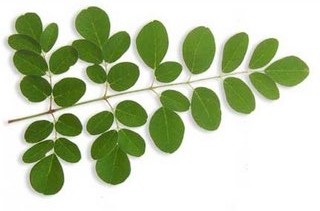Moringa
- Moringa is a plant that is native to the sub-Himalayan areas of India, Pakistan, Bangladesh, and Afghanistan. It is also grown in the tropics. The leaves, bark, flowers, fruit, seeds, and root are used to make medicine.
Contents
Uses
- “tired blood” (anemia)
- arthritis and other joint pain (rheumatism)
- asthma
- cancer
- constipation
- diabetes
- diarrhea
- epilepsy
- stomach pain
- stomach and intestinal ulcers
- intestinal spasms
- headache
- heart problems
- high blood pressure
- kidney stones
- fluid retention
- thyroid disorders
- bacterial, fungal, viral, and parasitic infections.
- reduce swelling
- increase sex drive (as an aphrodisiac)
- prevent pregnancy
- boost the immune system
- increase breast milk production
- Some people use it as a nutritional supplement or tonic.
- Moringa is sometimes applied directly to the skin as a germ-killer or drying agent (astringent).
- It is also used topically for treating pockets of infection (abscesses), athlete’s foot, dandruff, gum disease (gingivitis), snakebites, warts, and wounds.
- Oil from moringa seeds is used in foods, perfume, and hair care products, and as a machine lubricant.
- Moringa is an important food source in some parts of the world. Because it can be grown cheaply and easily, and the leaves retain lots of vitamins and minerals when dried, moringa is used in India and Africa in feeding programs to fight malnutrition. The immature green pods (drumsticks) are prepared similarly to green beans, while the seeds are removed from more mature pods and cooked like peas or roasted like nuts. The leaves are cooked and used like spinach, and they are also dried and powdered for use as a condiment.
- The seed cake remaining after oil extraction is used as a fertilizer and also to purify well water and to remove salt from seawater.
Benefits
- Moringa contains proteins, vitamins, and minerals. As an antioxidant, it seems to help protect cells from damage.
Other Names
Arango, Árbol de las Perlas, Behen, Ben Ailé, Ben Nut Tree, Ben Oléifère, Benzolive, Canéficier de l’Inde, Chinto Borrego, Clarifier Tree, Drumstick Tree, Horseradish Tree, Indian Horseradish, Jacinto, Kelor Tree, Malunggay, Marango, Mlonge, Moringa oleifera, Moringa pterygosperma, Moringe de Ceylan, Mulangay, Murungakai, Narango, Nebeday, Paraíso Blanco, Perla de la India, Pois Quénique, Sahjna, Saijan, Saijhan, Sajna, San Jacinto, Shagara al Rauwaq, Shigru, Terebinto.
References
Source: WebMD, “Moringa”, www.webmd.com/vitamins-supplements/

